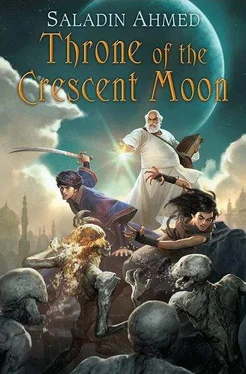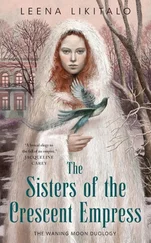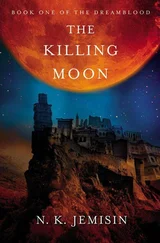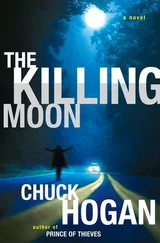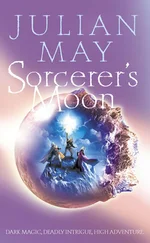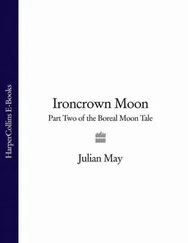She was again overcome with a terrible sense of all she had lost. She thought of home—of spiced yoghourt and fresh flatbread. She wished, with tears forming in her eyes, that she could see her father, or her cousin, or any of her band, one more time.
With my father against my band! With my band against my tribe! With my tribe against the world! The old Badawi saying echoed mockingly through her head. She was the last of the Banu Laith Badawi, and she had no children. What was band now? What was tribe?
Her thoughts were interrupted by the Doctor’s shouts from above “A-ha! It is here, praise God!” The ghul hunter came running downstairs, the others behind him. He sat at the low table beside her divan and opened a small black book.
“You have more right to hear this than anyone, Zamia.”
She nodded appreciatively, still feeling weak.
When they were all gathered around, the Doctor jabbed a thick finger at the book before him and bellowed, “This book! This is where I know the names Hadu Nawas and Mouw Awa. Ismi Shihab’s memoirs. Listen to this, all of you.
“Hadu Nawas was the last living member of a once great family. He was wealthy and kept a fine mansion near the Far Gardens, on the outskirts of the city. Once, twice, thrice did dark rumors arise among the poor people of that neighborhood about children disappearing into Hadu Nawas’s mansion. The Khalif knew of the man’s warped ways, but Hadu Nawas was a political ally, so the Khalif did nothing.
“The winds of politics shift quickly, though. A series of events—intricate as puzzlecloth, quick as lightning, made Hadu Nawas an enemy of the court. And suddenly the pious Khalif was outraged by Hadu Nawas’s child butchery.”
Here the ghul hunter looked up at Litaz. “And you say you found this book boring , my dear?”
Litaz shrugged. “I did not read that far.”
The Doctor turned back to the book and kept reading.
“I was there—sent as a recorder of crimes—when the watchmen burst in on that man-shaped monster. He had made an unspeakable little lair for himself beneath his mansion. There were indecent drawings on the walls and child-sized cages. We found Hadu Nawas with a hatchet in his hand and a gratified snarl on his face, standing over a little girl’s body.
“I cannot lie to God, so why lie to the page? We bound that man and beat him. Tore out his nails, stabbed at his olive sack and tortured him right up to his trial. Some wished to put the fiend on display but the Khalif forbade speaking of the crimes to the common people.
“The web of influence was woven such that the Khalif wished to purge the perished Nawas family’s name of this last-of-the-line madman. So Hadu Nawas’s name was stripped from him. It was decreed that he would be sealed in one of the tainted tombs of the Kem—destined to die of thirst or madness in the deep desert ruins.
“As a part of this punishment, the murderer was given a new name, a name tainted by the corrupt old Kem, to mark him for his imprisonment. It was not Hadu Nawas that was sealed in that tomb. It was Mouw Awa, the Child Scythe.”
The Doctor closed the book and scratched his big nose. “That is all the poet has to say.”
Zamia shuddered, and not only from her weakness. More than once, her band had spotted the imposing ruins of an ancient Kemeti pyramid or obelisk. But no Badawi in his right mind would go anywhere near these places, which were known to be tainted by the foulest sorts of magic. To be imprisoned in such a place…
“Cast into a ruined pyramid to die,” the old magus said. “Well, something obviously found him there. Something that would not let him die. That had a use for the soul of a killer of children.”
“The Dead Gods,” Litaz said, her voice eerily flat.
The Doctor scratched his balding pate in thought. “Well, my dear, you Soo know more about the heathens of old than we Abassenese do, but there are books that say that the Faroes of Kem ruled with soul-eating magics from their gods.”
Raseed, who had been long silent, narrowed his tilted eyes. He drew his sword and began to clean it. “With apologies, books and history are not our concern. This creature Mouw Awa is murdering men and women. Worse. If the Doctor speaks true, it keeps their souls from God’s presence. It—and whoever set it to killing—must be found and slain now .”
The way the dervish stood and spoke made Zamia want to be nearer to him. Were she not lying down, she feared she would have taken a step toward him against her will.
“So how can we hope to kill this foul thing?” Raseed continued. “My sword made no mark on it. My boldest blade-strokes did nothing.”
Dawoud’s brow furrowed in thought. He pulled at his hennaed goatee. “I am not surprised by that,” he said. “This Mouw Awa was apparently born of ancient Kem magics—twisted spells that your steel and even my own powers and Adoulla’s invocations could well be useless against. What say you, beloved?” Dawoud turned to his wife, not looking hopeful.
The alkhemist shook her head, her hair-rings clinking. “Given God’s help and months of study, perhaps I could try and devise some substance to fight such a thing, but we don’t have months.”
Zamia found herself speaking the words almost before she thought them. “It fled from my claws. I wounded it badly. Sense says I am the only one who can kill it.” She was very aware of what her next words were, and speaking them filled her with nausea. “Except that I am, myself, wounded and half dead. And I cannot take the shape.”
Litaz sniffed at her. “Don’t insult our craft, child. You’re not half dead. The way you heal, you’ll be back on your feet in a couple of days.”
Zamia turned her head and found the Doctor looking at her so hard that she felt certain he could see through her.
“Indeed,” the ghul hunter said. “And may it please God that it be so. For the child may be right about her claws.” He stopped staring at her and seemed now to stare hard at nothing. “Do you know, I’ve read translated accounts by barbarian priests in the Warlands? The land of Braxony was once tormented by creatures half wolf, half man. The heroes of that land were able to slay the monsters with silver swords—swords that they claimed were touched by Angels, as I recall. Of course those were just books and histories , and thus not our concern,” he said, sparing a droll look for Raseed.
Raseed made a noise in his throat. “The Angels would never visit blessings on those heathenish lands! Their favors are not for thieves and blasphemers! They—” he fell silent and looked at the floor. For the first time since she’d met him, Zamia scented something impure wafting from the dervish’s body. Something almost like deception. Impossible , she told herself. Perhaps her senses had been a bit confounded by injury and healing drugs.
The Doctor shrugged his big shoulders at his assistant. “I don’t know about that. But this is similar to what your people say of the lion-shape, is it not, Zamia? When you told me you carry no weapon, what was that bombastic bit of verse you spoke?”
It disturbed Zamia that she was growing so used to the Doctor’s insults to her people that she had begun ignoring them. “I am a Badawi, not a timid townsman. Bombast is not an insult to a true tribesman.”
“Fine, fine. The saying , child, what is it?”
“ My claws, my fangs, the silver knives with which the Ministering Angels strike .”
Then without warning, she felt tears begin to well up in her eyes. She wiped them away. “I am the only one who can avenge the Banu Laith Badawi, and I cannot take the shape!”
Читать дальше
